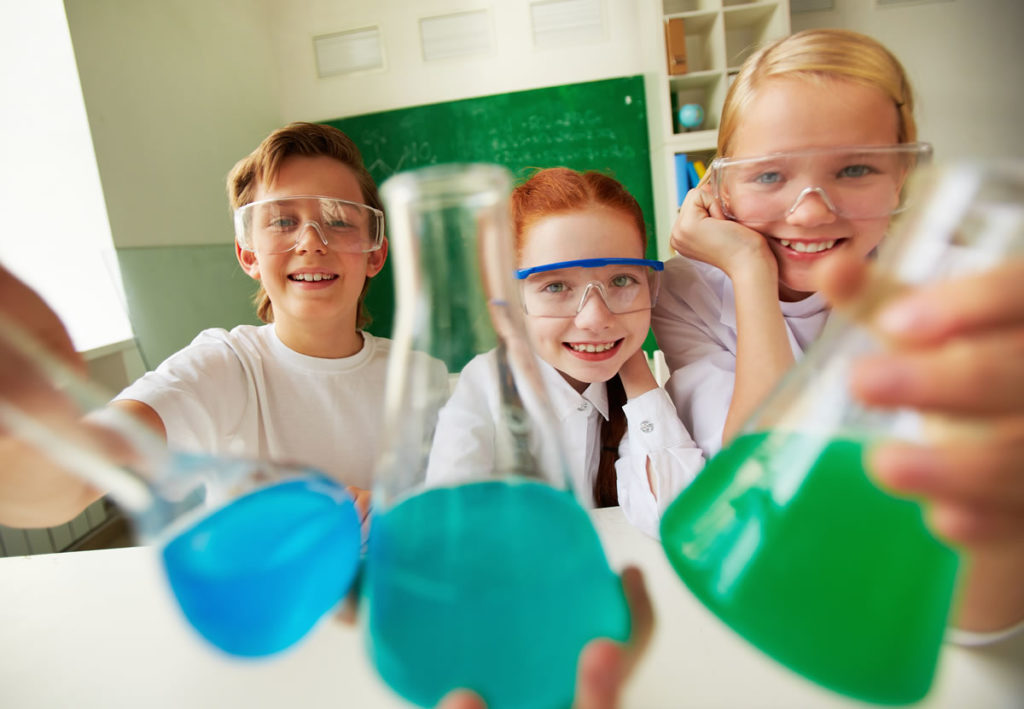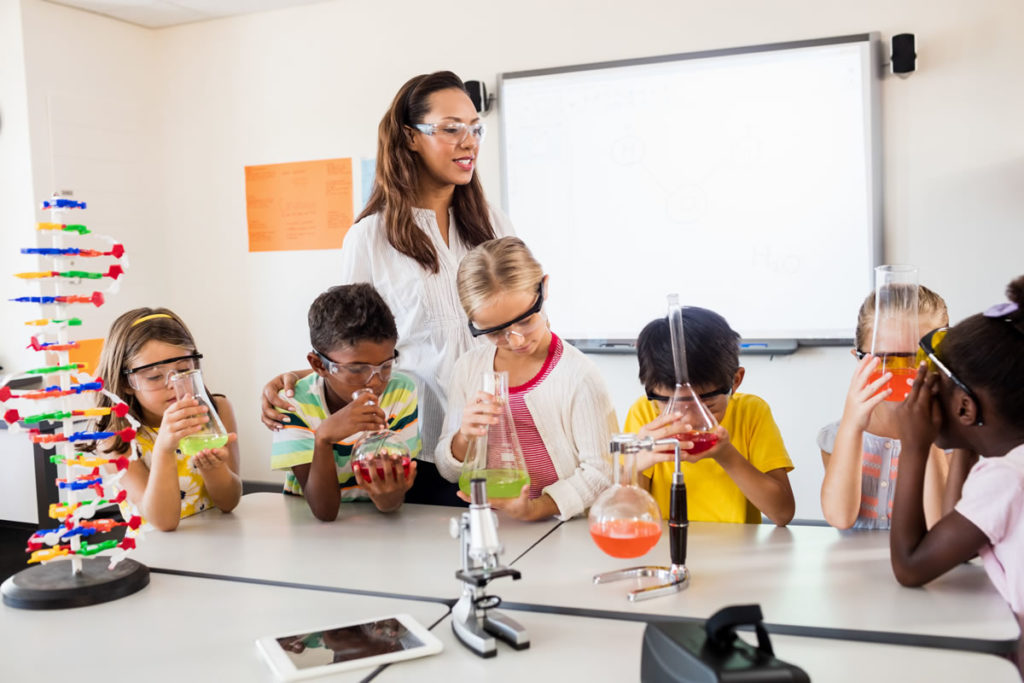All children begin life as true scientists, full of curiosity and questions about the world around them. For this reason, parents and teachers of kindergarten and elementary school children have the ideal opportunity to take advantage of that natural scientific potential in a benefit as important as learning, and it is also that teaching science to children can be something very fun if we know how.
In this sense, there are many experiments with which to learn the laws of physics, chemistry and biology , and also these experiments can also be excellent to do at a specific time of year, such as Christmas or Halloween . That is why simple experiments for children are a fantastic resource for the little ones to become familiar with science and learn in a fun way, because nothing like this time of life to enjoy knowledge with genuine curiosity and enthusiasm.

Benefits of science in childhood
In general, the discipline of science covers three main areas at the school level, which are, physical sciences (the properties of objects and materials), life sciences (the characteristics of organisms and our environment) and earth and space sciences . Experiments can cover these three areas very well and at the same time help parents and teachers guide young children through the basics of scientific inquiry, developing their research and experimentation skills in a practical way.
But what more benefits can the practice of science have in childhood?
- Learn by doing and playing
Young children have a hard time understanding abstract concepts, so touching and handling things helps them develop a more concrete understanding of scientific principles. That is why science activities in the classroom are often linked to interests typical of those initial stages of the school world, in order to keep children interested and attentive. There are many activities that children can do, such as experimenting with force and movement, using ramps, rolling cars and balls of different sizes and weights down different types of slopes, using blocks to change the incline of the ramps, or applying varying degrees of force with the help of straws or air pumps to move objects. The activity to be carried out does not matter, but as adults we know how to adapt it conveniently to the level of each child.
- Explore nature
Children can also spend a lot of time outside the classroom and use that time as scientific learning. Science curricula based on outdoor experimentation often take advantage of children’s curiosity about the world around them to use the outdoors as a natural laboratory. Try to have children visit local parks and gardens, lakes, beaches, ponds … because not only can you find knowledge of the world of science in the laboratory or in the schoolyard, but it can be done beyond school studying, for example, with earthworms, trees and plants. To complete the activity, students can collect samples and take certain insects or leaves back to the classroom to observe them, discuss them and create images or projects.

- Practice and express science
Fun at school does not always have to be linked to field trips or recess, and it is important that we be clear about this if we really want children to have a high level of motivation. And it is that, perhaps the best way to train future scientific thinkers is by helping the little ones to verbalize what they have observed during an experiment or activity, and that has to be done in class. When students hit a roadblock, good science teachers must be careful not to provide the answers, but to guide students to find the answers for themselves . Helping students to convey scientific ideas verbally is very important, as most young children do not yet have the fine motor skills necessary to express those ideas in writing.
And to make bringing science to the classroom even easier and more fun, we invite you to visit our new section of ICT resources for the science experiment classroom for children . A dream space with proposals for any time of year and level that will not only make children feel interested in the world of science, but also discover that learning can be something very interesting and fun even though it may not seem like it at times.
Encouraging children to think and practice science can have multiple developmental benefits, such as the excitement of being able to safely and safely experiment with the unknown and discover new things. When children experiment and think for themselves , the learning is more likely to stick with them and they are more motivated to try problem solving again in the future. After all, life is nothing more than trial and error, so becoming familiar with the concept can only bring benefits for their development and for the rest of their lives.











































































































